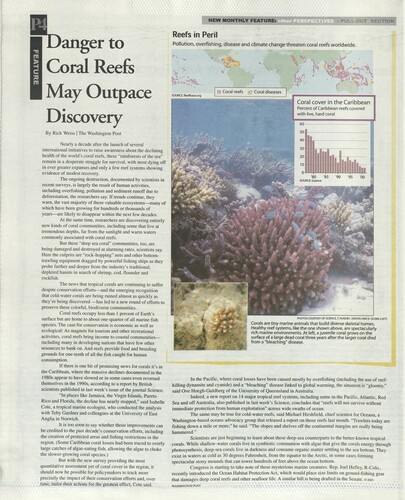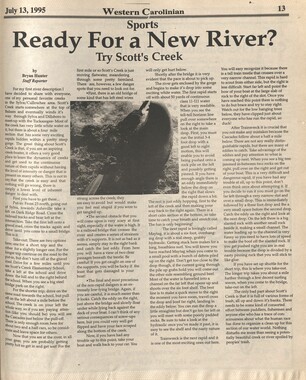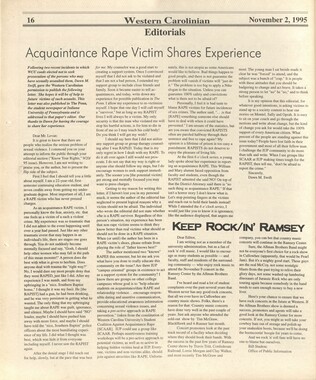Western Carolina University (21)
View all
- Canton Champion Fibre Company (2308)
- Cherokee Traditions (291)
- Civil War in Southern Appalachia (165)
- Craft Revival (1942)
- George Masa Collection (137)
- Great Smoky Mountains - A Park for America (3080)
- Highlights from Western Carolina University (422)
- Horace Kephart (998)
- Journeys Through Jackson (159)
- LGBTQIA+ Archive of Jackson County (89)
- Oral Histories of Western North Carolina (318)
- Picturing Appalachia (6617)
- Stories of Mountain Folk (413)
- Travel Western North Carolina (153)
- Western Carolina University Fine Art Museum Vitreograph Collection (129)
- Western Carolina University Herbarium (92)
- Western Carolina University: Making Memories (738)
- Western Carolina University Publications (2491)
- Western Carolina University Restricted Electronic Theses and Dissertations (146)
- Western North Carolina Regional Maps (71)
- World War II in Southern Appalachia (131)
University of North Carolina Asheville (6)
View all
- Allanstand Cottage Industries (62)
- Appalachian National Park Association (53)
- Bennett, Kelly, 1890-1974 (1463)
- Berry, Walter (76)
- Brasstown Carvers (40)
- Carver, George Washington, 1864?-1943 (26)
- Cathey, Joseph, 1803-1874 (1)
- Champion Fibre Company (233)
- Champion Paper and Fibre Company (297)
- Cherokee Indian Fair Association (16)
- Cherokee Language Program (22)
- Crowe, Amanda (40)
- Edmonston, Thomas Benton, 1842-1907 (7)
- Ensley, A. L. (Abraham Lincoln), 1865-1948 (275)
- Fromer, Irving Rhodes, 1913-1994 (70)
- George Butz (BFS 1907) (46)
- Goodrich, Frances Louisa (120)
- Grant, George Alexander, 1891-1964 (96)
- Heard, Marian Gladys (60)
- Kephart, Calvin, 1883-1969 (15)
- Kephart, Horace, 1862-1931 (313)
- Kephart, Laura, 1862-1954 (91)
- Laney, Gideon Thomas, 1889-1976 (439)
- Masa, George, 1881-1933 (61)
- McElhinney, William Julian, 1896-1953 (44)
- Niggli, Josephina, 1910-1983 (10)
- North Carolina Park Commission (105)
- Osborne, Kezia Stradley (9)
- Owens, Samuel Robert, 1918-1995 (11)
- Penland Weavers and Potters (36)
- Roberts, Vivienne (15)
- Roth, Albert, 1890-1974 (142)
- Schenck, Carl Alwin, 1868-1955 (1)
- Sherrill's Photography Studio (2565)
- Southern Highland Handicraft Guild (127)
- Southern Highlanders, Inc. (71)
- Stalcup, Jesse Bryson (46)
- Stearns, I. K. (213)
- Thompson, James Edward, 1880-1976 (226)
- United States. Indian Arts and Crafts Board (130)
- USFS (683)
- Vance, Zebulon Baird, 1830-1894 (1)
- Weaver, Zebulon, 1872-1948 (58)
- Western Carolina College (230)
- Western Carolina Teachers College (282)
- Western Carolina University (2008)
- Western Carolina University. Mountain Heritage Center (18)
- Whitman, Walt, 1819-1892 (10)
- Wilburn, Hiram Coleman, 1880-1967 (73)
- Williams, Isadora (3)
- Cain, Doreyl Ammons (0)
- Crittenden, Lorraine (0)
- Rhodes, Judy (0)
- Smith, Edward Clark (0)
- Appalachian Region, Southern (3032)
- Asheville (N.C.) (1945)
- Avery County (N.C.) (26)
- Blount County (Tenn.) (195)
- Buncombe County (N.C.) (1680)
- Cherokee County (N.C.) (283)
- Clay County (N.C.) (556)
- Graham County (N.C.) (238)
- Great Smoky Mountains National Park (N.C. and Tenn.) (535)
- Haywood County (N.C.) (3573)
- Henderson County (N.C.) (70)
- Jackson County (N.C.) (4925)
- Knox County (Tenn.) (35)
- Knoxville (Tenn.) (13)
- Lake Santeetlah (N.C.) (10)
- Macon County (N.C.) (421)
- Madison County (N.C.) (216)
- McDowell County (N.C.) (39)
- Mitchell County (N.C.) (135)
- Polk County (N.C.) (35)
- Qualla Boundary (982)
- Rutherford County (N.C.) (78)
- Swain County (N.C.) (2185)
- Transylvania County (N.C.) (270)
- Watauga County (N.C.) (12)
- Waynesville (N.C.) (86)
- Yancey County (N.C.) (72)
- Aerial Photographs (3)
- Aerial Views (60)
- Albums (books) (4)
- Articles (1)
- Artifacts (object Genre) (228)
- Bibliographies (1)
- Biography (general Genre) (2)
- Cards (information Artifacts) (38)
- Clippings (information Artifacts) (193)
- Copybooks (instructional Materials) (3)
- Crafts (art Genres) (622)
- Depictions (visual Works) (21)
- Design Drawings (1)
- Digital Moving Image Formats (2)
- Drawings (visual Works) (185)
- Envelopes (115)
- Exhibitions (events) (1)
- Facsimiles (reproductions) (1)
- Fiction (general Genre) (4)
- Financial Records (12)
- Fliers (printed Matter) (67)
- Glass Plate Negatives (381)
- Guidebooks (2)
- Internegatives (10)
- Interviews (823)
- Land Surveys (102)
- Letters (correspondence) (1070)
- Manuscripts (documents) (618)
- Maps (documents) (177)
- Memorandums (25)
- Minutes (administrative Records) (59)
- Negatives (photographs) (6090)
- Newsletters (1290)
- Newspapers (2)
- Notebooks (8)
- Occupation Currency (1)
- Paintings (visual Works) (1)
- Pen And Ink Drawings (1)
- Periodicals (194)
- Personal Narratives (10)
- Photographs (12977)
- Plans (maps) (1)
- Poetry (6)
- Portraits (4568)
- Postcards (329)
- Programs (documents) (181)
- Publications (documents) (2444)
- Questionnaires (65)
- Relief Prints (26)
- Sayings (literary Genre) (1)
- Scrapbooks (282)
- Sheet Music (2)
- Slides (photographs) (402)
- Songs (musical Compositions) (2)
- Sound Recordings (802)
- Specimens (92)
- Speeches (documents) (18)
- Tintypes (photographs) (8)
- Transcripts (329)
- Text Messages (0)
- A.L. Ensley Collection (275)
- Appalachian Industrial School Records (7)
- Appalachian National Park Association Records (336)
- Axley-Meroney Collection (2)
- Bayard Wootten Photograph Collection (20)
- Bethel Rural Community Organization Collection (7)
- Blumer Collection (5)
- C.W. Slagle Collection (20)
- Canton Area Historical Museum (2110)
- Carlos C. Campbell Collection (462)
- Cataloochee History Project (64)
- Cherokee Studies Collection (4)
- Daisy Dame Photograph Album (5)
- Daniel Boone VI Collection (1)
- Doris Ulmann Photograph Collection (112)
- Elizabeth H. Lasley Collection (1)
- Elizabeth Woolworth Szold Fleharty Collection (4)
- Frank Fry Collection (95)
- George Masa Collection (173)
- Gideon Laney Collection (452)
- Hazel Scarborough Collection (2)
- Hiram C. Wilburn Papers (28)
- Historic Photographs Collection (236)
- Horace Kephart Collection (861)
- Humbard Collection (33)
- Hunter and Weaver Families Collection (1)
- I. D. Blumenthal Collection (4)
- Isadora Williams Collection (4)
- Jesse Bryson Stalcup Collection (47)
- Jim Thompson Collection (224)
- John B. Battle Collection (7)
- John C. Campbell Folk School Records (80)
- John Parris Collection (6)
- Judaculla Rock project (2)
- Kelly Bennett Collection (1482)
- Love Family Papers (11)
- Major Wiley Parris Civil War Letters (3)
- Map Collection (12)
- McFee-Misemer Civil War Letters (34)
- Mountain Heritage Center Collection (4)
- Norburn - Robertson - Thomson Families Collection (44)
- Pauline Hood Collection (7)
- Pre-Guild Collection (2)
- Qualla Arts and Crafts Mutual Collection (12)
- R.A. Romanes Collection (681)
- Rosser H. Taylor Collection (1)
- Samuel Robert Owens Collection (94)
- Sara Madison Collection (144)
- Sherrill Studio Photo Collection (2558)
- Smoky Mountains Hiking Club Collection (616)
- Stories of Mountain Folk - Radio Programs (374)
- The Reporter, Western Carolina University (510)
- Venoy and Elizabeth Reed Collection (16)
- WCU Gender and Sexuality Oral History Project (36)
- WCU Mountain Heritage Center Oral Histories (25)
- WCU Oral History Collection - Mountain People, Mountain Lives (71)
- WCU Students Newspapers Collection (1923)
- Western North Carolina Tomorrow Black Oral History Project (69)
- William Williams Stringfield Collection (2)
- Zebulon Weaver Collection (109)
- African Americans (390)
- Appalachian Trail (35)
- Artisans (521)
- Cherokee art (84)
- Cherokee artists -- North Carolina (10)
- Cherokee language (21)
- Cherokee pottery (101)
- Cherokee women (208)
- Church buildings (190)
- Civilian Conservation Corps (U.S.) (111)
- College student newspapers and periodicals (2012)
- Dams (108)
- Dance (1023)
- Education (222)
- Floods (63)
- Folk music (1015)
- Forced removal, 1813-1903 (2)
- Forest conservation (220)
- Forests and forestry (1198)
- Gender nonconformity (4)
- Great Smoky Mountains National Park (N.C. and Tenn.) (181)
- Hunting (47)
- Landscape photography (25)
- Logging (122)
- Maps (83)
- Mines and mineral resources (9)
- North Carolina -- Maps (18)
- Paper industry (38)
- Postcards (255)
- Pottery (135)
- Railroad trains (72)
- Rural electrification -- North Carolina, Western (3)
- School integration -- Southern States (2)
- Segregation -- North Carolina, Western (5)
- Slavery (5)
- Sports (452)
- Storytelling (243)
- Waterfalls -- Great Smoky Mountains (N.C. and Tenn.) (66)
- Weaving -- Appalachian Region, Southern (280)
- Wood-carving -- Appalachian Region, Southern (328)
- World War, 1939-1945 (174)
Western Carolinian Volume 68 Number 04
Item
Item’s are ‘child’ level descriptions to ‘parent’ objects, (e.g. one page of a whole book).
-
-
anger to Coral Reefs May Outpace Discovery By Rick Weiss I The Washington Post Nearly a decade after the launch of several international initiatives to raise awareness about the declining health of the world's coral reefs, these "rainforests of the sea" remain in a desperate struggle for survival, with most dying off in ever greater expanses and only a few reef systems showing evidence of modest recovery. The ongoing destruction, documented by scientists in recent surveys, is largely the result of human activities, including overfishing, pollution and sediment runoff due to deforestation, the researchers say. If trends continue, they warn, the vast majority of these valuable ecosystems—many of which have been growing for hundreds or thousands of years—are likely to disappear within the next few decades. At the same time, researchers are discovering entirely new kinds of coral communities, including some that live at tremendous depths, far from the sunlight and warm waters commonly associated with coral reefs. But these "deep sea coral" communities, too, are being damaged and destroyed at alarming rates, scientists say. Here the culprits are "rock-hopping" nets and other bottom- trawling equipment dragged by powerful fishing ships as they probe farther and deeper from the industry's traditional, depleted haunts in search of shrimp, cod, flounder and rockfish. The news that tropical corals are continuing to suffer despite conservation efforts—and the emerging recognition that cold-water corals are being ruined almost as quickly as they're being discovered —has led to a new round of efforts to preserve these colorful, biodiverse communities. Coral reefs occupy less than 1 percent of Earth's surface but are home to about one-quarter of all marine fish species. The case for conservation is economic as well as ecological: As magnets for tourism and other recreational activities, coral reefs bring income to coastal communities— including many in developing nations that have few other resources to bank on. And reefs provide food and breeding grounds for one-tenth of all the fish caught for human consumption. If there is one bit of promising news for corals it's in the Caribbean, where the massive declines documented in the 1980s appear to have slowed or in some cases even reversed themselves in the 1990s, according to a report by British scientists published in last week's issue of the journal Science. "In places like Jamaica, the Virgin Islands, Puerto Rico and Florida, the decline has nearly stopped," said Isabelle Cote, a tropical marine ecologist, who conducted the analysis with Toby Gardner and colleagues at the University of East Anglia in Norwich. It is too soon to say whether those improvements can be credited to the past decade's conservation efforts, including the creation of protected areas and fishing restrictions in the region. (Some Caribbean coral losses had been traced to overly large catches of algae-eating fish, allowing the algae to choke the slower-growing coral species.) But with the new survey providing the most quantitative assessment yet of coral cover in the region, it should now be possible for policymakers to track more precisely the impact of their conservation efforts and, over itini%iailor their actions for the•greåtést effect, Cote said. NEW MONTHLY FEATURPÄ Reefs in Peril Pollution, overfishing, disease and climate change threaten coral reefs worldwide. Coral reefs Coral diseases SOURCE: Reefbase.org Coral cover in the Caribbean Percent of Caribbean reefs covered with live, hard coral 60 50 30 10 (85 SOURCE: Science '00 PHOTOS COURTESY OF SCIENCE, T. HUGHES (ABOVE) AND K GLENN (LEFT) Corals are tiny marine animals that build diverse skeletal homes. Healthy reef systems, like the one shown above, are spectacularly rich marine environments. At left, a juvenile coral grows on the surface of a large dead coral three years after the larger coral died from a "bleaching" disease. In the Pacific, where coral losses have been caused mostly by overfishing (including the use of reef- killing dynamite and cyanide) and a "bleaching" disease linked to global warming, the situation is "gloomy," said Ove Hoegh-Guldberg of the University of Queensland in Australia. Indeed, a new report on 14 major tropical reef systems, including some in the Pacific, Atlantic, Red Sea and off Australia, also published in last week's Science, concludes that "reefs will not survive without immediate protection from human exploitation" across wide swaths of ocean. The same may be true for cold-water reefs, said Michael Hirshfield, chief scientist for Oceana, a Washington-based oceans advocacy group that released a report on those reefs last month. "Trawlers today are fishing down a mile or more," he said. "The slopes and shelves off the continental margins are really being hammered." Scientists are just beginning to learn about these deep-sea counterparts to the better-known tropical corals. While shallow-water corals live in symbiotic communion with algae that give the corals energy through photosynthesis, deep-sea corals live in darkness and consume organic matter settling to the sea bottom. They exist in waters as cold as 30 degrees Fahrenheit, from the equator to the Arctic, in some cases forming spectacular stony mounds that can tower hundreds of feet above the ocean bottom. Congress is starting to take note of these mysterious marine creatures. Rep. Joel Hefley, R-Colo., recently introduced the Ocean Habitat Protection Act, which would place size limits on ground-fishing gear that damages deep coral reefs and other seafloor life. A similar bill is being drafted in the Senate. 0 2003 WASHINGTON POST
Object
Object’s are ‘parent’ level descriptions to ‘children’ items, (e.g. a book with pages).
-
The Western Carolinian is Western Carolina University's student-run newspaper. The paper was published as the Cullowhee Yodel from 1924 to 1931 before changing its name to The Western Carolinian in 1933.
-
























































































